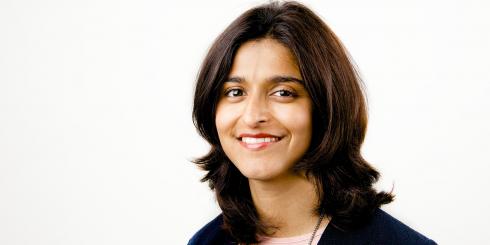
The new government commission on racial inequalities is being set up by a woman who has cast doubt on the existence of institutional racism.
Munira Mirza is leading much of the work to form the commission on race and ethnic disparities announced by Boris Johnson on Sunday.
Writing in The Telegraph behind a paywall, the Prime Minister said he wanted to look at “all aspects of inequality.” He wrote: “There is much more that we need to do; and we will. It is time for a cross-governmental commission to look at all aspects of inequality – in employment, in health outcomes, in academic and all other walks of life.”
It is understood that Mirza has said she hopes to recruit the controversial Trevor Phillips as part of the commission. Phillips, a former chair of the Equalities and Human Rights Commission, has previously referred to UK Muslims as being “a nation within a nation.”
Following the announcement, the Muslim Council of Britain warned against the commission becoming a PR exercise.
Speaking to Newsweek, MCB Secretary General Harun Khan said: “Considering the U.K. government’s record on Islamophobia, from this being endemic in the Conservative Party and an issue it continually fails to address with any level of sincerity, to its decision to reject the definition of Islamophobia as proposed by the APPG on British Muslims and endorsed by Muslim communities, it is crucial for the lives of British Muslims that this commission is more than just a knee-jerk PR reaction.”
The Institute of Race Relations thinktank said it would be hard to have confidence in the commission’s outcomes.
Subscribe to our newsletter and stay updated on the latest news and updates from around the Muslim world!
“Any enquiry into inequality has to acknowledge structural and systemic factors. Munira Mirza’s previous comments describe a ‘grievance culture’ within the anti-racist field and she has previously argued that institutional racism is ‘a perception more than a reality’,” a spokesperson said.
“It is difficult to have any confidence in policy recommendations from someone who denies the existence of the very structures that produce the social inequalities experienced by black communities.”
Right-winger
Mirza, 42, was born in Oldham to parents of Pakistani origin and went on to read English literature at Oxford University.
After a stint at Policy Exchange, a right-wing Tory think-tank, she worked for Johnson during his tenure as London mayor between 2008 and 2016. She initially acted as his director of arts, culture and the creative industries, before becoming his deputy mayor for education and culture.
Johnson has described Mirza as his “nonsense detector”, and earlier this year included her in a list of “the five women who have influenced and inspired him the most.”
Mirza has been an outspoken critic of previous government attempts to tackle structural factors behind racial inequality.
She condemned an audit of racial inequalities in public services commissioned by Theresa May, which No 10 say will form part of the basis of the new commission. Writing for the Spectator in 2017, Mirza said the audit showed how “anti-racism is becoming weaponised across the political spectrum”.
In a 2018 blogpost, she wrote that identity politics has one common denominator: “Men are beasts. Whites are oppressors. Britain is bad.”
She added that it was “driven by people who are acting according to a political agenda, who want to seek out and seize upon any instance of racism as proof that Britain (and the British people) are stuck in some neo-imperialistic mindset.”
And when Boris Johnson criticised the burqa she leapt to his defence, calling it a symbol of gender inequality.
She said: “Johnson genuinely dislikes the burka, and has felt this way for as long as I’ve known him. Not because he is ignorant about Islam. Quite the opposite. He knows far more about Islam and Islamic cultures than most of the politicians who are now lining up to attack him.
“He sees that the burka is a recent cultural accretion, which has been championed by extremists in many countries around the world and is actively opposed by moderate Muslims. That some women in the West freely choose to wear it doesn’t make it any more palatable. It remains a symbol of gender inequality (if it wasn’t, why don’t men wear it too?) and it is intended quite literally to limit the interaction between Muslim women and other people.”
Racial inequality
Deep-seated racial inequality in the UK has been laid bare in several studies exposing entrenched disparities between different ethnic communities.
In 2017 significant differences in the life outcomes of British ethnic minority and white people were revealed in the Government’s racial disparity audit.
A considerably higher unemployment rate among black, Asian and minority ethnic people than white British adults and lower home ownership among Bangladeshis and black people were among the findings to come out of the report.
Among the other findings were:
- Ethnic minorities are under-represented at senior levels across the public sector
- The unemployment rate for black, Asian and minority ethnic people (8 per cent) is nearly double that of white British adults (4.6 per cent), with a larger gap in the North (13.6 per cent) than the South (9 per cent).
- White people, Indians and Pakistanis are more likely to own their own home than Bangladeshis and black people, and there are disparities in home ownership even after taking account of age, geography, income and socio-economic group.





















